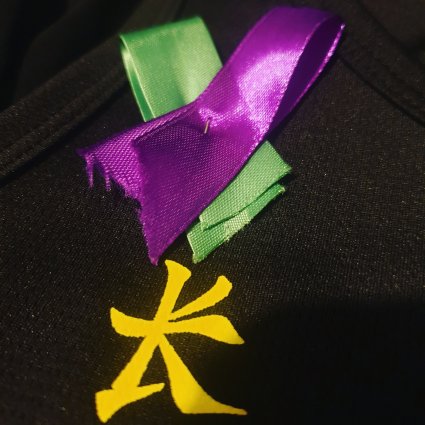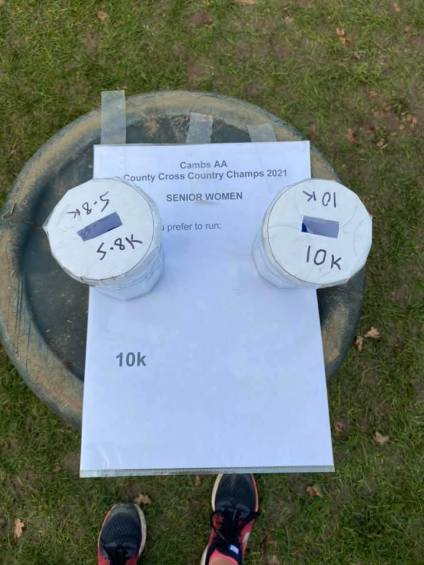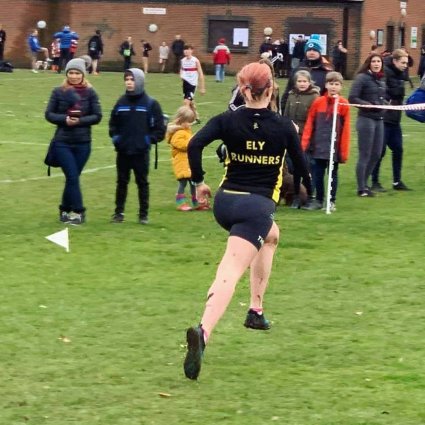Women being able to officially compete in longer distances is a surprisingly recent development. At the 1928 Olympics some women who competed in the 800m collapsed at the finish line (a not uncommon sight today), and the New York Times said that “even this distance makes too great a call on feminine strength”. It led to women not being allowed to compete at distances longer than 200m in the Olympics for the next 32 years.
Unbelievably, it then wasn’t until 1972 that women were allowed to “officially” run the Boston Marathon, after trailblazers like Bobbi Gibb and Kathrine Switzer were breaking the (ridiculous) rules by running without registering or entering using only their initials so that the male organisers wouldn’t realise they were female and start worrying about uteruses littering the course. The women’s marathon wasn’t introduced into the Olympics until 1984.
But it’s 2020, so this has all been consigned to the history books right? With people like Jasmin Paris winning the 268 mile Spine Race, there’s no way women would be running lesser distances than their male counterparts. We know our uteruses can cope (the plucky little blighters).
And on the whole, this is the case. Just not in the Cross-Country sphere. In XC, women are generally running shorter distances than men. Case in point at the recent Cambs AA XC Championships, where women run around 5.8km, and the men run 10km. This is even less than the National recommended standard of 8km for women (which is bad enough). But for those women who then get called up to run for the county at the Inter Regionals, they will find the distances equalised, and be expected to run 10km when they’ve qualified at only a little over half the required distance.
The IAAF have equalised the distances run in the World Cross-Country Championships, and Scottish Athletics have done the same for their national championships. So what gives for the English counties? My friend and clubmate Charlotte has been giving her all to the RunEqual movement for some time, including writing open letters to gather signatures from local clubs, and some of the reasons she’s been given by Cambs AA for not equalising the distances have been gobsmacking. They have tried to argue that the timetable won’t allow for the change (whilst ignoring the idea that everyone could perhaps be equalised to 8km – the time saved on the men’s race would allow for the extra time needed for the women’s) or that a longer distance race would mean fewer entries and would increase costs to participants.

But what I saw in the lead up to the Cambs AA (where Charlotte was threatened with disqualification if she went through with her plan to peacefully run the men’s distance in protest with myself and some clubmates) and what happened at the County Championships race really showed how bad the attitudes of these associations can be. Charlotte had received confirmation ahead of the Championships that it had been agreed that from 2021, work would be done to ensure women are given the opportunity to run the same distance as men, should they wish. It felt like a huge step forward and we were looking forward to racing with this news in mind and our RunEqual ribbons pinned to our tops. But the attitude on the day did not give this impression at all.
It turned out that Cambs AA had done little to communicate to local running clubs that there was an intention to look at equalising the distances. So it was quite a surprise to the majority of the senior women who, as they lined up for the start of the race, heard one of the officials start telling them that at the end of the run, they would all be given a token to put in a pot to decide whether to keep running at 5.8km or step up to 10km. The tone of this announcement was very much along the lines of “you may be aware that the women’s race is going to be increased”, like it was a decision that had already been made thanks to a small number of “meddling women”. There was zero mention of equality.

This goes massively against the RunEqual movement in so many ways. Firstly, it’s not necessarily about women running longer. It’s about either opening up both distances to both genders or choosing an equal distance. Maybe men run a little less. Maybe women run a little more. Maybe women run quite a bit more. On a fundamental level an open conversation needs to be had to see which option is the best for all concerned. Secondly, if there is going to be a vote, it should be opened up to all athletes, not just women. And thirdly, if you ask a bunch of women who have just given their everything on a tough, muddy XC race if they would like to run further, of course a lot of them in that moment will say no – they’re knackered and very few people would relish the idea of running further the second they’ve just busted a gut sprinting for a finish line.
And the icing on this misogynistic cake? The moment when the official, speaking about increasing the women’s race to 10km, uttered the immortal words:
“But you don’t want to do that, do you ladies?”
FFS.
What does this sort of attitude tell our young female athletes? It’s bad enough that the senior male race is ALWAYS before the women’s race and treated as the main event. And it’s bad enough that the officials on the day forgot to give out or even announce the winners for the 2nd and 3rd place veteran women’s teams, and again treated me like a “meddling woman” when I asked about it. Both Norfolk and Suffolk counties have managed to equalise their distances, so we know it can be done. But sadly, many of the Athletics Associations are boys’ clubs, run by people who are set in their ways and have never been made to feel lesser because of their gender.
And it goes beyond counties too. The attitudes of the English Cross Country Association representatives on Facebook are fist-gnawingly bad on this matter. Speaking of the recent Home Countries International in Stirling they snarkily said that “the Senior Men ran a little shorter than most are used to, running 8K as the Senior Women also did” rather than perhaps just stating that the seniors ran the same distance. They then began to attack anyone who spoke of the RunEqual movement, with one choice comment saying “we would prefer that you did not use our posts to further your cause, which generally is a minority view, judging by all the research that has been undertaken.” All the research? Please, let’s see it. Because until 2 weeks ago I certainly hadn’t been asked my opinion on the matter, and the only reason my opinion was asked on the day is because Charlotte pushed for it. If this is the attitude coming from the national association, can we really expect things to change on a county level?
I’m not sure how things will look at the 2021 Cambs AA XC Championships, but I will continue to support Charlotte in everything she does to make change happen. She has already offered to lead a working group on the matter to no avail. And if that change doesn’t come, perhaps we’ll both be running the men’s distance in 2021 anyway, proudly wearing our RunEqual ribbons. It’s not quite on the same scale as Bobbi Gibb and Kathrine Switzer, but this is our Boston marathon.

Sprinting to put my token in the 10k pot
Dang! Well of course, never mind the vote; once we let ladies into the pubs, they started drinking pints and then the whole thing just fell apart. I haven’t had a cooked meal in years, and I don’t know where my socks are…
Okay, on a more serious note, mansplaining should be outlawed, especially that officialdom, patronising twaddle-splaining you are getting from race officials. But then, it’s a universal constant that you give a bloke a yellow jacket and a tenny-tiny bit of power and he starts to sprout a funny ‘tash and get notions.
Gas thing is, over the longer distances, dem pesky ladies actually perform as well as the men, and often better. So it’s all a load of balls anyway (or, em, uteruses…)
Keep up the good work. We’re all created equal. And of course, runners even more so 😉
LikeLike
This was such an epic comment, thank you! Hope you find your socks…!
LikeLiked by 1 person
I may never recover 😉
LikeLike
This is horrifying. I’m not really aware of what the current scene is, so thanks for highlighting this!
LikeLike
It beggars belief, but the way some of these associations are dealing with it are shocking.
LikeLiked by 1 person
This is amazing!
J
>
LikeLike
FFS, it’s 2020, we really shouldn’t be having this debate.
I don’t believe that the male runners themselves are opposed to running parity with women. No runner I know is so scared of competition (from anyone, male or female) that they try to prevent them entering the same competitions as them. I think it’s all coming from the dinosaurs who simply don’t want change and don’t want to change their views about women and their place in society.
Keep on fighting and keep on being a meddling woman.
LikeLike
Thanks Calvin, and I completely agree with you. I don’t believe much of this is coming from runners themselves, just those who are using the power they have to reinforce their old fashioned belief systems.
LikeLike
You don’t change minds by insulting people. They’re the ones out there for hours before anybody arrives and are there for hours after everybody leaves. Just as well they don’t do it for the thanks.
Change is necessary and overdue. If you want to ensure change, come to the meetings where the decisions are made. Stand for the committees making the decisions. There were vacancies at the recent Cambs AA AGM. If you want the people making the decisions to be more like you then maybe you need to be one of the people.
LikeLike
Thanks for the comment Richard. I am of course grateful to anyone who volunteers their time (and tell those who I see out on the course) but having someone load the way they delivered the information so that it suited their agenda was insulting to all of the work Charlotte has put in so far.
I’m fairly new to this conversation so am reporting on what I know so far, which is that Charlotte has offered to set up a working group to discuss this but wasn’t been taken up on it. She has also found out about meetings last minute, and I’ve struggled to find information on the Cambs AA website to help with this. However, this is my starting point in the process and I hope to continue with it as much as I can. Will be interested to hear what happens from today’s meeting!
LikeLike
Readers might be interested in this:
https://www.theguardian.com/lifeandstyle/2020/jan/03/female-ultra-athletes-leading-field-women-less-ego
LikeLike